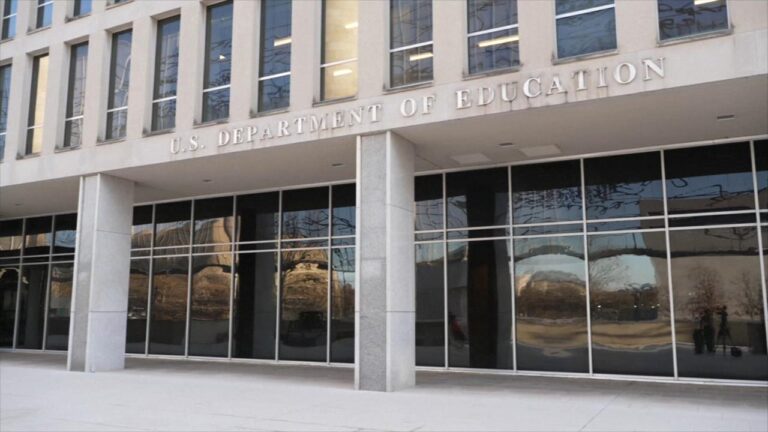Federal Budget Cuts Jeopardize Special Education and Support for Low-Income Students in Illinois
Federal Funding Reductions Threaten Special Education Services in Chicago
The U.S. Department of Education’s recent announcement of potential budget cuts and workforce reductions poses a notable threat to special education programs across Chicago and the broader Illinois region. This comes at a time when enrollment in special education is climbing steadily,intensifying the strain on already limited resources. Schools are grappling with understaffing and shrinking support services,challenges that could worsen if layoffs of educators and program coordinators proceed. Parents, advocates, and community leaders caution that these financial setbacks may severely restrict access to critical therapies and personalized learning accommodations that many students with disabilities depend on daily.
As low-income students are disproportionately represented in these programs, the consequences could deepen existing educational disparities.Experts warn that the proposed cuts might lead to:
- Decreased availability of specialized instructional tools and adaptive technology
- Fewer qualified aides and therapists supporting classroom instruction
- Increased student-to-teacher ratios, reducing individualized attention
Officials from Chicago Public Schools stress that safeguarding program quality will require immediate advocacy efforts and innovative funding approaches.The table below outlines the anticipated effects on key program areas:
| Program Area | Current Budget | Proposed Reduction | Expected Outcome |
|---|---|---|---|
| Special Education Personnel | $120 million | 15% | Elimination of approximately 180 teaching jobs |
| Therapeutic Services | $45 million | 20% | Fewer therapy hours available per student |
| Assistive Technology | $15 million | 10% | Postponed upgrades and replacements of devices |
Concerns Over Impact on Low-Income Students Statewide
Across Illinois, educators and advocacy organizations are raising alarms about the repercussions of the Department of Education’s budget tightening and layoffs. Low-income students, particularly those requiring special education in Chicago and neighboring communities, face growing uncertainty as federal support diminishes. These cuts threaten to widen the gap in educational access and quality, compelling many districts to reconsider the availability of programs and staffing levels that directly affect vulnerable learners.
Key areas of concern highlighted by stakeholders include:
- Declines in special education staffing, reducing personalized support for students with disabilities.
- Elimination of supplemental programs such as after-school tutoring and mental health counseling.
- Weakened oversight capacity to ensure compliance with federal mandates protecting low-income students.
These challenges arise at a critical juncture when equitable education is paramount. Advocates urge policymakers to revisit funding allocations to shield the most at-risk students from setbacks that could have lasting negative effects on their academic and social progress.
Long-Term Consequences for Student Achievement and Community Support Systems
Viewed through the lens of shifting federal priorities,Chicago’s special education landscape faces an uncertain future with potential ripple effects across Illinois. Budget reductions threaten to curtail essential services, undermining the personalized instruction and therapeutic interventions critical for many students.This strain risks widening the achievement gap, especially for low-income children who often lack access to alternative resources. Educators warn that these constraints could lead to larger class sizes, fewer specialized staff, and delays in student evaluations, all of which hinder equitable academic progress.
Beyond schools, communities may experience increased pressure as families turn to external support networks, placing additional demands on local nonprofits and social service agencies. The capacity of these organizations could be stretched thin,complicating efforts to maintain consistent care and support outside the classroom. Primary concerns include:
- Heightened demand on after-school programs and social workers;
- Challenges coordinating care for students with disabilities;
- Potential increases in absenteeism and behavioral issues linked to unmet needs.
| Area of Impact | Long-Term Effect | Community Resource Strain |
|---|---|---|
| Special Education Staffing | Decline in student support and academic progress | Increased reliance on external therapists and aides |
| Access for Low-Income Students | Lower graduation and achievement rates | Greater dependence on local nonprofit organizations |
| Family Support Services | Disruptions in continuity of care | Overextended social work and counseling programs |
Calls for Enhanced State and Local Investment to Offset Federal Cuts
In light of impending federal budget reductions, education experts are advocating for increased financial commitments from state and local governments to sustain special education and support services for low-income students. With the U.S. Department of Education facing layoffs and funding decreases, communities such as Chicago risk losing critical programs that help close educational gaps. Stakeholders emphasize that without strengthened local funding, vulnerable students may lose access to indispensable resources, including specialized educators and enrichment programs.
Advocates recommend a thorough funding approach that includes:
- Boosted allocations within state education budgets prioritizing special education and Title I schools;
- Development of public-private partnerships to supplement conventional funding;
- Community-led grant initiatives designed to alleviate the impact of federal cutbacks.
These strategies could serve as vital buffers against federal shortfalls, helping to preserve program continuity and safeguard the educational advancement of Illinois’ most vulnerable students.
| Funding Source | Current Budget | Proposed Increase |
|---|---|---|
| State Education Budget | $1.2 billion | +15% |
| Local School District Funds | $800 million | +10% |
| Private Grants & Partnerships | $150 million | +25% |
Conclusion: Prioritizing Equity Amidst Fiscal Challenges
As the U.S. Department of Education advances with planned layoffs and budget reductions, concern is mounting among educators, parents, and advocates throughout Chicago and Illinois regarding the future of special education and support for low-income students. Reduced federal funding threatens to deepen existing inequities and strain already limited resources, highlighting the urgent need for policymakers to consider the long-term consequences for vulnerable student populations. Moving forward, it is indeed imperative that education leaders and community stakeholders collaborate to develop solutions that uphold equity and ensure all students receive the quality education they deserve.





